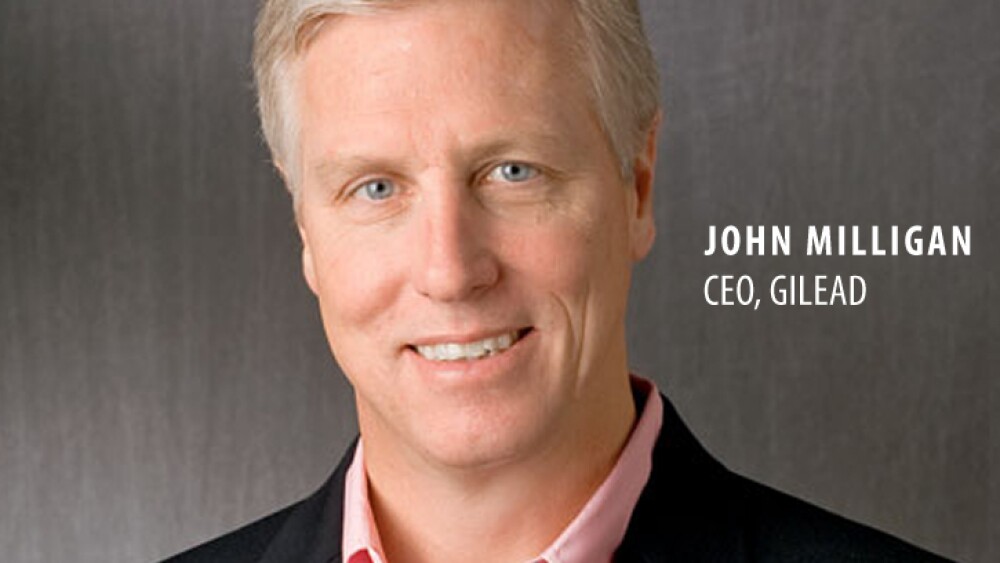September 14, 2016
By Mark Terry, BioSpace.com Breaking News Staff
Both Gilead and Tesaro have been rumored to be acquisition targets. So why not go to the next step—Gilead buy Tesaro?
Gilead is the dominant player in hepatitis C (HCV) drugs, with Sovaldi, Harvoni, and Epclusa. It also has a dominant position in the HIV/AIDS market, with drugs like Truvada, Atripla, Complera, and Stribild. But despite the HCV franchise bringing in about $8.3 billion in the first half of this year, and its HIV business bringing in around $5.4 billion in the first half, the company’s stock price has been weak, losing more than 35 percent in value since June 2015. A good acquisition would strengthen its share price.
Tesaro, headquartered in Waltham, Massachusetts, actually had its stock take a big jump in early July after a June 29 announcement that its Phase III clinical trial of niraparib met its endpoints of progression-free survival (PFS) in patients with ovarian cancer. Niraparib is an oral, once-daily PARP inhibitor currently in three clinical trials.
PARP inhibitors are a new class of oncology drugs that have breakthrough potential. Tesaro is leading in that race, which is why it has been cited as a possible acquisition target for Gilead, Amgen , Celgene or Pfizer .
Other companies actively working on PARP inhibitors include AstraZeneca , whose Linparza for women with BRCA-positive advanced ovarian cancer, was the first PARI inhibitor to hit the market. Clovis Oncology has a PARI inhibitor, rucaparib, in mid-stage trials. Sanofi had a PARP inhibitor that failed a Phase III trial in 2011.
Tesaro is expected to file for approval with the U.S. Food and Drug Administration (FDA) by the end of this year, with a final decision expected in 2017. It seems likely to be approved, and is believed to have better efficacy than most other PARP inhibitors, including better than Linpara and rucaparib.
At a recent conference, Gilead indicated it was willing to take a risk with a “meaningful differentiated” PARP inhibitor. Gabelli & Co. analyst Jing He recently wrote in a note to investors, “Although a PARPi deal would not move the needle for Gilead, we expect the company to be more active in growing its pipeline with deals in the second half.”
Gilead has about $21 billion in cash and cash equivalents, and Tesaro’s market cap is $4.93 billion, so price isn’t a big obstacle.
Nida Ahmed, writing for Bidnessetc in July, said, “Tesaro, however, seems to be a perfect fit for Medivation (MDVN), which is facing takeover threat from Sanofi.” But as we all know by now, Pfizer picked up Medivation.
Jing He expands on that thought in his recent note. “On Aug. 22, Pfizer agreed to acquire Medivation for $81.50 per share in cash. We believe Gilead participated in the bidding process as Medivation fits well in its acquisition criteria as stated in our prior note. According to Medivation’s filings, there were five bidders in the final rounds, three of whom offered between $80.00 - $81.50 percent share. Although most of Medivation’s value is attributed to Xtandi, we believe multiple buyers were willing to pay $1 billion for its PARPi. In previous biotech transactions, drugs in new drug application stage are acquired at 5-6 times peak sales, which we believe is appropriate to value niraparib.”





